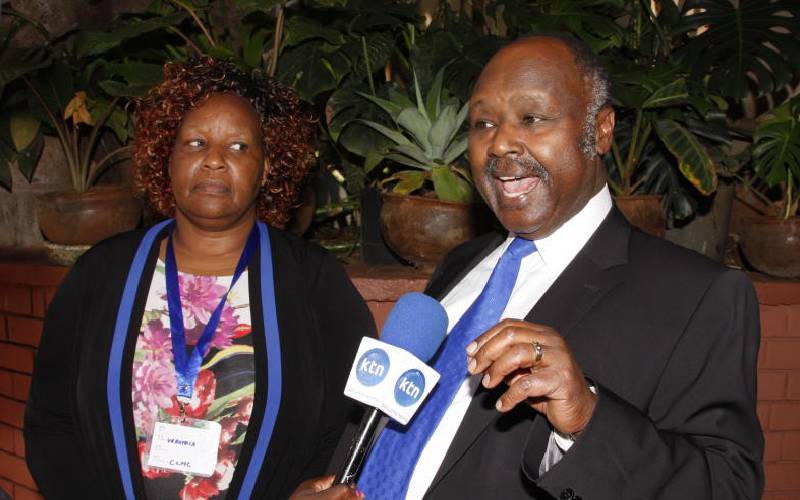
Majority of Kenyans cannot distinguish the different kinds of mental illnesses, which explains why most cases of suicide are missed.
A report by the Ministry of Health has identified depression and suicide as the leading mental health illnesses in the country.
However, the report notes poor documentation of mental illnesses by health workers, with all neurological related conditions lumped up together.
“At present only one indicator captures all mental disorders in the existing health information system. This means that health care workers are forced to record substance use disorders, suicide attempts, schizophrenia, and depression simply as mental disorders,” reads the report released on July 7.
The report titled “Mental health and well-being towards happiness and national prosperity,” indicates that Kenyans do not know the different behaviours that are synonymous to a mental illness.
As a result, the report compiled by a task force led by Dr Frank Njenga, notes that care for the affected is not given on time and it comes when the disease has worsened.
According to the report, Kenyans think that the term mental health was synonymous with mental illness.
It further notes that in the last few years, the society has witnessed unprecedented number of people and families adversely affected by poor mental health. Kenya, however, does not have the exact data on suicide cases. “This is the ticking time bomb that Kenyans are sitting on,” reads the report.
It notes that it is estimated that globally, one person dies by suicide every 40 seconds. Other illnesses mentioned are substance use disorder, bipolar disorder, schizophrenia and other psychoses.
The report notes that unlike other illnesses, the greatest impact of mental ill health does not lie solely in the number of persons who die from the disease, but from the number of years lived with the disability.
Official records, as noted by the task force report, suggest that in 2016, the national suicide mortality rate was 3.2 per 100,000 people.
“Experts believe that the true figures are much higher. Whatever the truth, Kenyans have the duty to care for their countrymen who reach, by reason of mental disorder, depths of despair that lead to suicide,” the report reads in part.
This picture, the report says, is adequate to conclude that Kenya can no longer bury its head in the sand as people continue to cry out for help.
“It was clear that at least 25 per cent of outpatients and 40 per cent of inpatients in different health facilities had a mental illness, and an estimated prevalence of psychosis stated as one per cent of the general population,” reads the report.
However, that attempted suicide remains recorded as a criminal act by those who perform it means that Kenyans who suffer the severe pain inflicted by depression suffer also the additional trauma of being viewed as criminals.
“Parliament to move fast to decriminalise suicide attempts in order to reduce stigma and discrimination and encourage help-seeking among people that are feeling suicidal,” reads the recommendation of the task force.
Additionally, the task force also recommends restricting access to firearms.
It also proposes educating the media on responsible reporting of suicide and implementing programmes among young people to build life skills to cope with stress.
The team held discussions with a total of 1,569 Kenyans and received 206 memoranda.
 The Standard Group Plc is a multi-media organization with investments in media
platforms spanning newspaper print
operations, television, radio broadcasting, digital and online services. The
Standard Group is recognized as a
leading multi-media house in Kenya with a key influence in matters of national
and international interest.
The Standard Group Plc is a multi-media organization with investments in media
platforms spanning newspaper print
operations, television, radio broadcasting, digital and online services. The
Standard Group is recognized as a
leading multi-media house in Kenya with a key influence in matters of national
and international interest.











